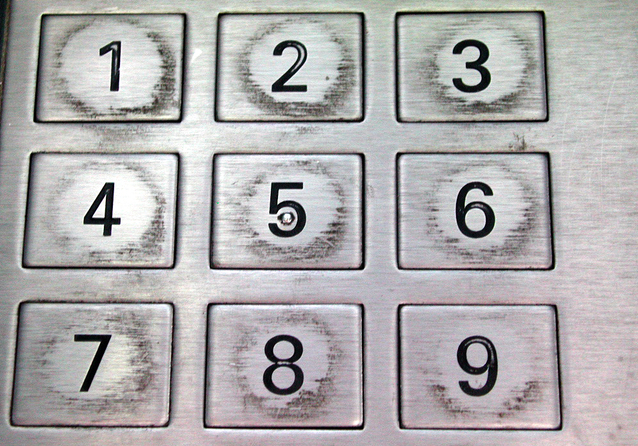When you run a business it can be wise to cover yourself against the very many risks that come with operating a business. Your everyday activities may involve an element of risk, either physically to yourself, your staff members, any visitors to your premises, or to the general public. There are different types of business insurance that you can take out to cover you for all sorts of risks, including accidents, damage, theft, and liability cover. The sort of insurance you take out will depend on the type of business you run.
Having proper business insurance in place can also be very reassuring for your business customers or clients to see. Having business insurance can help your company to look more professional, which means you will be taken more seriously by your customers or clients. Once you have gone through the company formations process, one of the first things you should do before you start trading is to sort our your business insurance to protect you and your company from the everyday risks of running a business.
Let’s take a look at the most popular types of insurance that are needed for common types of small business operations, and insurance questions most often asked, especially by independent sole operators and micro business owners.
If I work from home, do I need business insurance?
 Working from home can be very different from running a business from a rented office, warehouse or business unit. Even if you never leave your home while you work, you may still need to have some insurance cover, and this will depend on what you do.
Working from home can be very different from running a business from a rented office, warehouse or business unit. Even if you never leave your home while you work, you may still need to have some insurance cover, and this will depend on what you do.
Let’s say that you work as a therapist working out of a spare room, or need to invite clients into your home to do your job. Then you will need to look at getting some public liability insurance to cover you just in case any of your clients should suffer and accident or injury while visiting you on your premises.
What is public liability insurance and do I need it?
 Public liability insurance is valuable for those who come into contact with clients and members of the public. Your public liability insurance would cover you for compensation costs as well as legal fees should you ever be sued by a client or member of the public for property damage or personal injury. This will cover you for incidents happening both on your premises or when you conduct your business activities in different locations, so for example a mobile therapist or consultant that visits people’s homes.
Public liability insurance is valuable for those who come into contact with clients and members of the public. Your public liability insurance would cover you for compensation costs as well as legal fees should you ever be sued by a client or member of the public for property damage or personal injury. This will cover you for incidents happening both on your premises or when you conduct your business activities in different locations, so for example a mobile therapist or consultant that visits people’s homes.
One of the most common insurance claims comes from people suffering from an accident from tripping, slipping or falling over. The second most popular insurance claims come from property damage while visiting your premises, or for damage suffered while you are working in their property. This can be anything from clothing or personal property being ripped or damaged by being caught on door handles, being chewed by a family pet, or a spill from a liquid, to a kitchen cupboard falling from the wall and causing damage after being installed by a kitchen fitter.
In short, public liability insurance covers you for the following types of claim:
- compensation payments for third party injury or death
- legal expenses
- medical fees, if the NHS claim for hospital treatment
- repair or replacement costs, for damaged property or possessions
For those who work from home offering consultation services or professional advice, then you will be responsible for looking after and keeping safe a lot of personal client data or intellectual property. Here is would be wise to hold some professional indemnity insurance.
What is professional indemnity insurance?
 Professional indemnity insurance is wise to have in place should your work involves giving professional, legal or financial advice to your clients. Should any of your clients decide to claim for compensation because they suffered from a significant financial or profession loss due to your negligence.
Professional indemnity insurance is wise to have in place should your work involves giving professional, legal or financial advice to your clients. Should any of your clients decide to claim for compensation because they suffered from a significant financial or profession loss due to your negligence.
When offering a profession service to your clients, you will be responsible for looking after a lot of confidential data, so you should take out some professional indemnity insurance cover to protect yourself from any claims for negligence and data breaches that could damage your client and cause them financial harm.
Accidents and mistakes do happen, so even when you are not directly responsible for the incident, you will still need insurance to cover the legal costs of defending yourself against any claims. Your indemnity insurance will cover you for any claims of negligence from a client that may have lost money as a result of following your advice or guidance. The insurance will cover your legal fees and any compensation payments awarded to your client.
Indemnity insurance typically covers you for the following risks:
- professional negligence or breach of duty of care, such as providing bad advice
- unintentional copyright infringement
- unintentional breach of confidentiality
- loss of personal documents or sensitive data
- defamation or libel
Don’t do business alone. Join a Community.
Subscribe to our newsletter and join the ranks of 100,000+ entrepreneurs who receive weekly insights, legal updates, and compliance reminders directly in their inbox.
What if I run an online business? Do I need insurance for this?
 Despite the simplicity of running an online business when compared to a more traditional bricks-and-mortar physical business, you will still face a set of unique risks and challenges that insurance will help you to cover.
Despite the simplicity of running an online business when compared to a more traditional bricks-and-mortar physical business, you will still face a set of unique risks and challenges that insurance will help you to cover.
There are lots of independent online traders that sell physical goods and stock through popular auction sites, as well as creative types that make their own stock to sell in their own online shop. Whether you buy in your stock or make it yourself, you will need to protect it against risks such as fire, theft and damage. Without your stock to sell, you cannot make any money!
Specialist tools and equipment that you need for your business can also be covered and protected from the same risks. So if you have a set of specialist woodworking tools or equipment suddenly stolen from your workshop, your insurance will cover you for any replacement tools and equipment needed, as well as for repairs to broken locks, gates doors or windows that were damaged during the break-in.
Having insurance for covering your stock, tools and equipment can put your mind at rest. Many business insurance companies will discuss your business in great detail to establish exactly what you need covering in your insurance policy so that you are never left out of pocket should something happen.
Stock insurance covers the cost price of your stock, so if it becomes damaged or stolen, you will be compensated with enough money to replace your stock based on the cost price of the stock that you lost. Insurance for your tools and equipment will cover the replacement costs of buying new tools and necessary equipment to allow you to carry on your trade. Most insurance companies will work out a policy for you to cover tools and equipment stored within a workshop, within a van, or both.
What about being a sole trader? Do I need business insurance too?
 Again, this will depend on the type of work that you do and the environment that you work within. As a sole trader you will not need employers liability insurance simply because you don’t employ any staff. However, you may consider taking out a personalised insurance policy to cover you if you work as a tradesman or offer services that have an element of risk involved, whether that is physical or financial.
Again, this will depend on the type of work that you do and the environment that you work within. As a sole trader you will not need employers liability insurance simply because you don’t employ any staff. However, you may consider taking out a personalised insurance policy to cover you if you work as a tradesman or offer services that have an element of risk involved, whether that is physical or financial.
It is worth looking at a few business insurance companies to see which business sectors and industries they cover. Some companies will specialise in certain sectors only, but others will offered tailored policies that can be built up by adding different elements and protections, depending on your trade or business for a more bespoke policy.
Further reading:
What is a Trademark?
The Ultimate Guide to Starting your own Personal Training Business

















